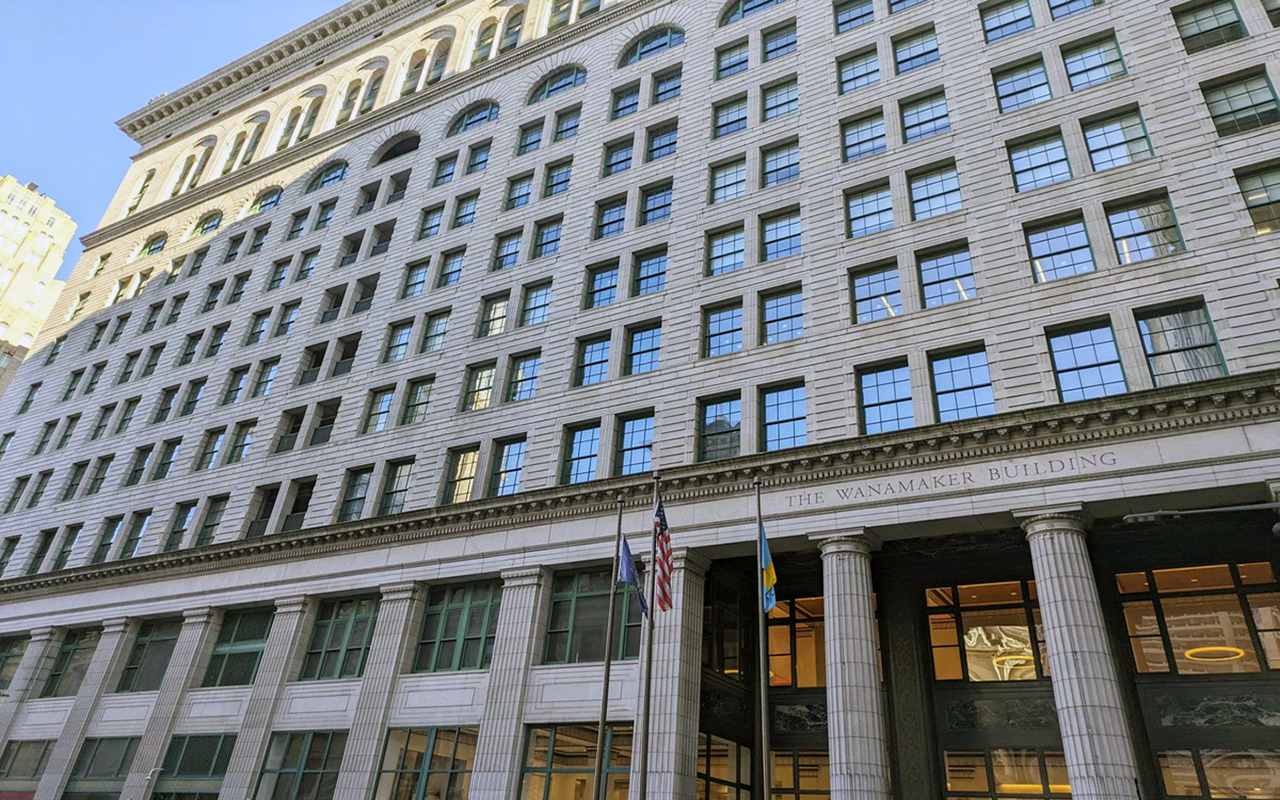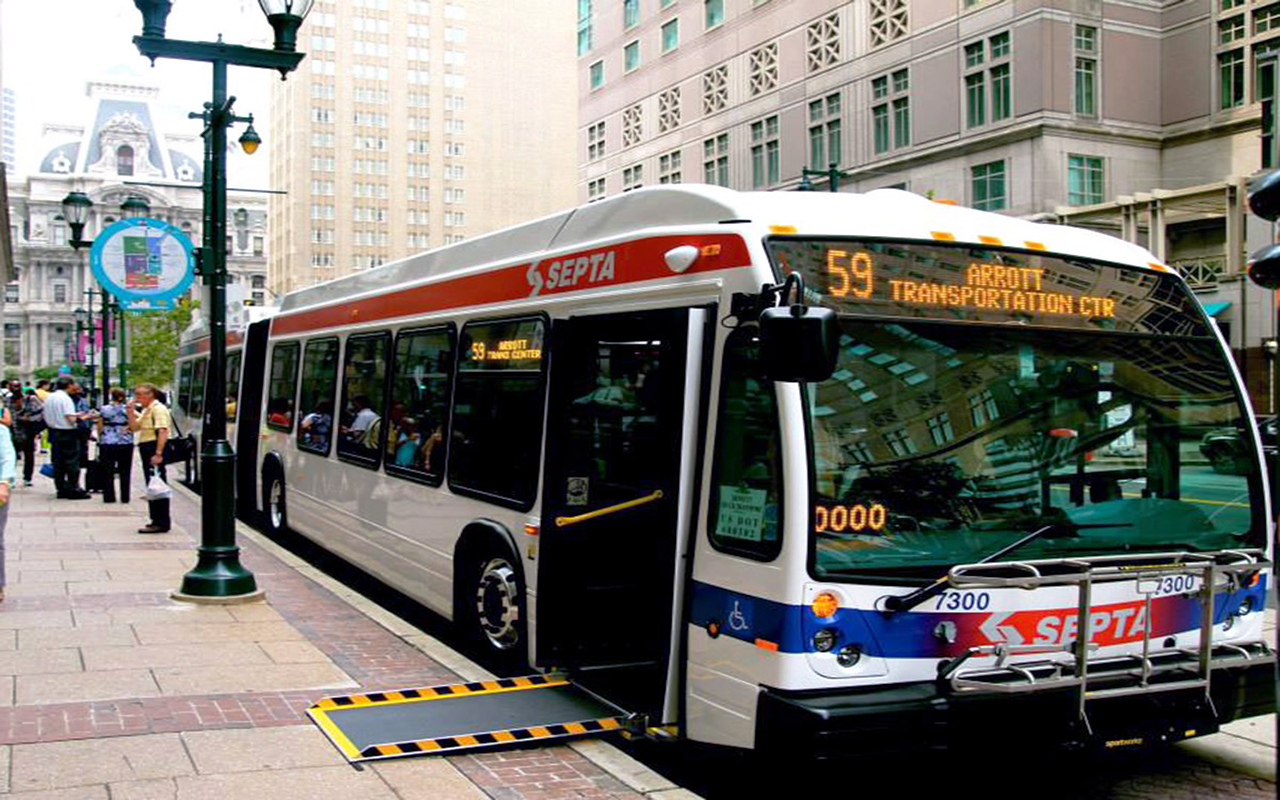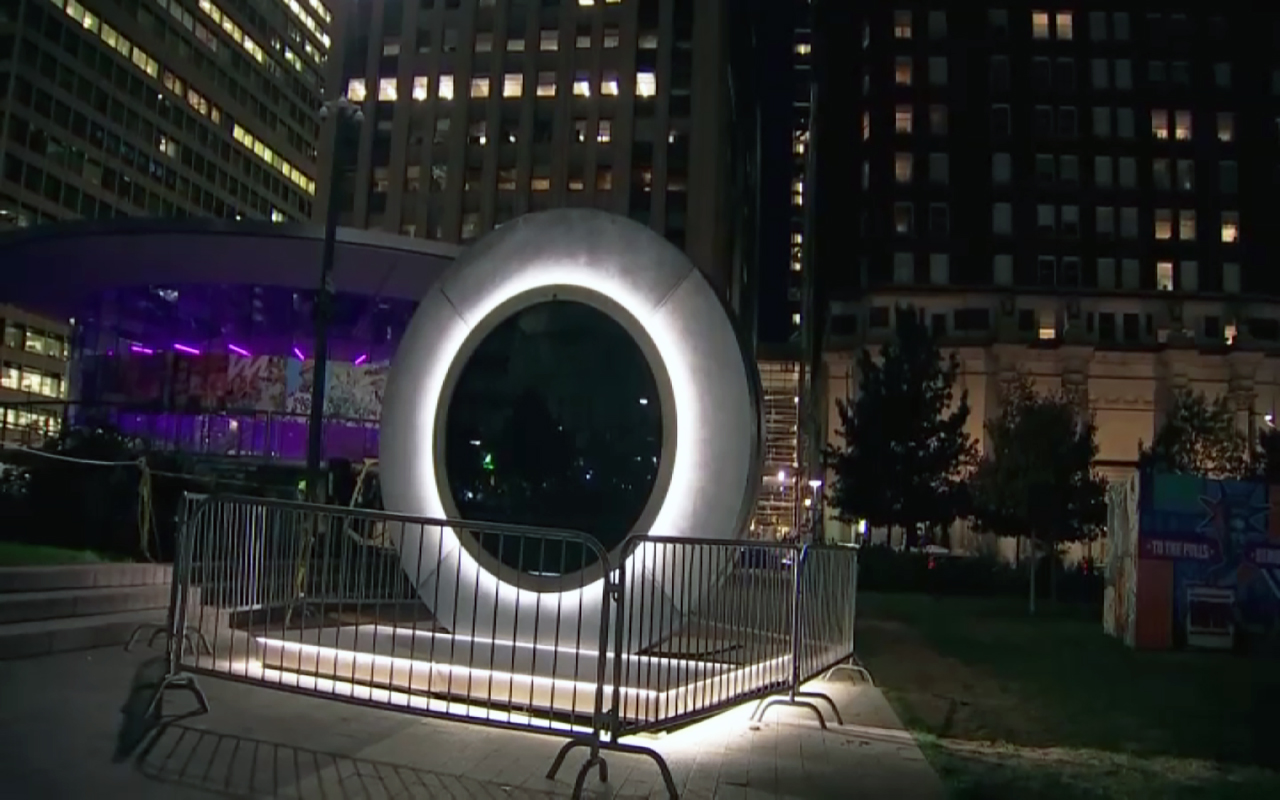
TF Cornerstone Eyes Residential Conversion of Historic Wanamaker Building
New York developer advances plans to turn Philadelphia's iconic office space into apartments.
The historic Wanamaker building in Center City, a Philadelphia landmark, may soon see its office space transformed into residential units as New York-based developer TF Cornerstone advances foreclosure proceedings against current owner Rubenstein Partners.
The 1.4 million-square-foot building, located at 1300 Market Street, includes a 435,000-square-foot retail section housing a Macy’s store and a 954,363-square-foot office portion, which is 79% vacant. TF Cornerstone acquired the majority of the debt on the office section earlier this year and has aggressively pursued foreclosure in Philadelphia’s Court of Common Pleas.
A settlement conference is scheduled for Jan. 6, with a pre-trial conference set for Feb. 3 and trial slated for March 3, should no agreement be reached. Once foreclosure is finalized, TF Cornerstone is expected to convert the office portion into apartments, according to a source familiar with the firm's plans.
This would mark the developer’s first foray into Philadelphia for office-to-residential conversion, aligning with its recently announced $1 billion joint venture with Dune Real Estate Partners, dubbed Alta Residential. The venture aims to address the rising demand for housing in major cities by repurposing underused office buildings. Target cities include New York, Washington, D.C., Boston, and now Philadelphia.
"Converting office buildings to residential is a generational opportunity given the scale of distress in office real estate and unmet housing demand," TF Cornerstone stated in its Alta Residential announcement.
RELATED CONTENT
The Wanamaker, a 114-year-old Beaux-Arts structure, presents unique challenges for conversion. Its massive floor plates, exceeding 100,000 square feet, far surpass the 20,000-square-foot ideal for residential projects. Developers must grapple with how to handle the excess interior space, as all units must include windows to comply with housing codes. Solutions could include leaving interior sections vacant or demolishing portions of the interior to create a central courtyard — both costly options.
The building’s office space, which spans floors 4 through 12, has seen declining occupancy rates in recent years. Backed by a $124 million loan originated in 2018, the property was placed in receivership in September 2023 after investors in a commercial mortgage-backed securities trust initiated the foreclosure process.
Despite the hurdles, TF Cornerstone has significant experience in similar conversions, having completed 15 office-to-residential projects, including transforming a former FBI headquarters in New York into 313 apartments and a refrigeration facility in Manhattan’s Meatpacking District into 318 units.
While some local developers remain skeptical about the feasibility of such a large-scale conversion, others see the potential for revitalizing the Wanamaker as a mixed-use destination.
The Wanamaker stands as Philadelphia’s most prominent distressed property, and its potential transformation could mark a pivotal moment for the city’s ongoing effort to repurpose underutilized real estate amid a challenging office market.











LEAVE A COMMENT:
Join the discussion! Leave a comment.